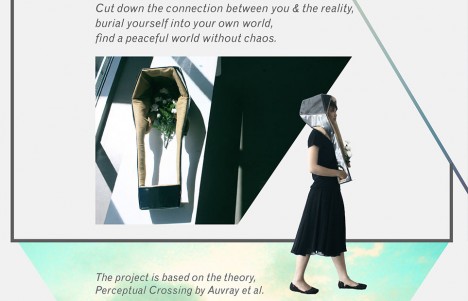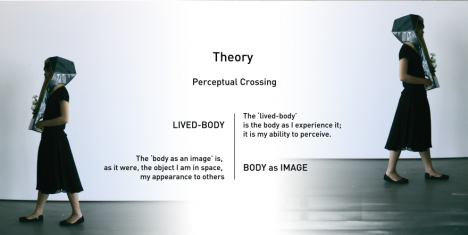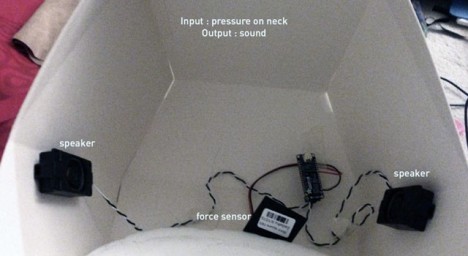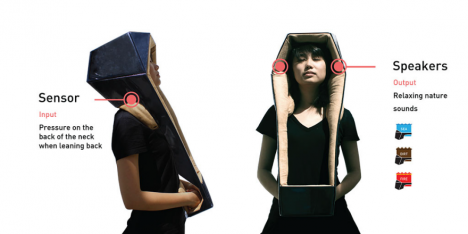Would you prefer to see your subject’s face or have a sun flare where her head should be? No? Well, then that’s just one good reason why you should be shooting with a lens hood. However, many beginning photographers wonder what on earth the lens hood actually does? Is it just there to make your camera look more professional? Of Continue Reading
Photodoto
Posts Tagged ‘Hood’
This Is When To Use A Camera Lens Hood
KUVRD Launches Lens Hood That Fits 99% of Lenses
The post KUVRD Launches Lens Hood That Fits 99% of Lenses appeared first on Digital Photography School. It was authored by Jaymes Dempsey.

Lens hoods cause photographers a lot of frustration.
On the one hand, they’re necessary. They reduce unwanted flare while protecting the front element from damage.
On the other hand, they’re big, unwieldy pieces of plastic that take up space in your camera bag. And you generally need a different lens hood for every one of your lenses.
Which is why KUVRD, the company behind a universal lens cap, has just launched a new Kickstarter campaign:
For the Universal Lens Hood.
As KUVRD explains on its Kickstarter page, the Universal Lens Hood is carefully designed to fit 99% of lenses, by way of a clever stretch-and-fold system that allows you to expand the hood around your lens, then resize the hood depending on the lens you’re using.
The Universal Lens Hood also offers other innovative features, such as compactness (it can be folded up into a small ring that fits in your pocket) and filter compatibility (you can nestle any circular filter inside the lens hood, regardless of size).
Plus, the Universal Lens Hood promises to eliminate reflections from surfaces. If you’re shooting the skyline through a hotel window, for example, simply press the front of the hood up against the glass and watch as the reflections disappear.
And did I mention that it only costs $ 30 USD?
Now, there are a few drawbacks to the Universal Lens Hood worth highlighting:
First, it actually comes in two sizes, one designed for lenses with a 54mm to 76mm filter size, and the other designed for lenses with a 72mm to 112mm filter size. This isn’t a huge deal, but it does seem to undermine the idea of a single universal lens hood; if you have lenses of different sizes, you’ll need two of the hoods, not one.
Second, I do wonder about adjusting focus rings and zoom rings under the Universal Lens Hood. While KUVRD claims that it’s easy to fold the lens hood back and gain access to these controls, this seems inconvenient at best, especially if you’re trying to zoom and focus manually in a single shoot (and could potentially cost you images while you’re fiddling around).
While the Universal Lens Hood is technically still in the funding stage, it has already shot far beyond its $ 5000 USD Kickstarter goal, which means that orders will be shipped (likely in December). So if you’re looking for a lens hood that is ultra-compact, fits all your lenses, and includes some additional useful features, then the Universal Lens Hood is worth a look.
You can become a Kickstarter backer here, where you can grab a single copy of the Universal Lens Hood for $ 30 USD or two copies of the Universal Lens Hood for $ 50 USD.
Now over to you:
What do you think of the Universal Lens Hood? Is it something you’d be interested in? Do you get frustrated with your current lens hoods? Share your thoughts in the comments!
The post KUVRD Launches Lens Hood That Fits 99% of Lenses appeared first on Digital Photography School. It was authored by Jaymes Dempsey.
How to Make a DIY Lens Hood to Eliminate Lens Flare
Not all lenses come with lens hoods, and that can mean you can suffer the effects of lens flare. This occurs when light is scattered across the glass elements of a lens, often caused by bright sunlight at a particular angle, and it produces coloured spots around your image. Lens hoods shade the lens, almost entirely stopping lens flare in the majority of situations.
Sometimes this can be used to creative effect, but for the majority of the time you’re going to want to get rid of it. Building your own DIY lens hood is a way around this problem, and this 2-minute tutorial from COOPH shows you how to do just that.
By recycling an old plastic bottle, whilst using some black spray paint, you can create your own “foldable” lens hood to work with whatever lens you need.
For more tips about handling lens flare, check out some of our tutorials:
- How to use Lens Flare to Your Advantage
- 5 Tips for Achieving Artistic Lens Flare: How To
- How to Prevent Lens Flare
- How to Eliminate Lens Flare
The post How to Make a DIY Lens Hood to Eliminate Lens Flare appeared first on Digital Photography School.
Under the hood: A look inside the Panasonic Lumix DMC-LX100
A look inside the Panasonic Lumix DMC-LX100
 |
Panasonic’s LX100 is an ambitious little camera. It steps right over the 1″ sensor compact class with a 16MP Four Thirds sensor (though only 12.7MP is truly available), a 24-75mm equiv. F1.7-2.8 lens and 4K video recording. It all added up to a very favorable score and a gold award when we reviewed the camera. Now, thanks to the folks at iFixit, we can take a look at what’s inside the LX100 without ever picking up a screwdriver.
See the iFixit Panasonic Lumix DMC-LX100 Disassembly Guide
Take a look at iFixit’s full LX100 Repair Guide
A look inside the Panasonic Lumix DMC-LX100
 |
Removing the battery is a first and very important step.
A look inside the Panasonic Lumix DMC-LX100
 |
After removing plenty of screws from the body of the camera, removing this metal piece from the hotshoe reveals yet another set of screws.
A look inside the Panasonic Lumix DMC-LX100
 |
A spudger is the best tool for this job – with all of the screws out of the way the back of the chassis can be pried away from the camera body.
A look inside the Panasonic Lumix DMC-LX100
 |
Here’s a view of the back panel with the cover out of the way. The motherboard lies just below the buttons seen here.
A look inside the Panasonic Lumix DMC-LX100
 |
To get to the motherboard, the LCD needs to be removed. Here, the silver metal backing is pried away with a spudger. A ribbon cable also connects the screen to the rest of the device and is carefully removed.
A look inside the Panasonic Lumix DMC-LX100
 |
With the LCD gone, the motherboard and its related ribbon cables are visible.
A look inside the Panasonic Lumix DMC-LX100
 |
A couple more screws out of the way and the EVF pops right out. In that housing is an XGA 1024×768 panel.
A look inside the Panasonic Lumix DMC-LX100
 |
Next goes the motherboard, which is gently pried back and pulled away from the camera.
A look inside the Panasonic Lumix DMC-LX100
 |
Next to go is this copper plate. On the other side we’ll find the lens, but only after the next batch of screws is removed.
A look inside the Panasonic Lumix DMC-LX100
 |
No fewer than four different sized screws, from 4mm down to 3.1mm are used here.
A look inside the Panasonic Lumix DMC-LX100
 |
With the last (well, almost last) screws out of the way the lens casing is free…
A look inside the Panasonic Lumix DMC-LX100
 |
…and then the lens can be removed as well.
A look inside the Panasonic Lumix DMC-LX100
 |
The top panel is ready to go too…
A look inside the Panasonic Lumix DMC-LX100
 |
…and we can see what goes on under the dials and shutter release up there.
A look inside the Panasonic Lumix DMC-LX100
 |
And there you have it, the LX100 in all disassembled.
Articles: Digital Photography Review (dpreview.com)
Wearable RIP: Coffin Hood Helps You Relax Among City Chaos
[ By Steph in Design & Products & Packaging. ]

There’s no peace quite like death, a fact that seems to have inspired this coffin-shaped, sensory-dampening hood encouraging you to “say goodbye to everything” no matter how chaotic your environment may be. The ‘Wearable RIP’ fits around your head, with padding for your shoulders and a kangaroo pocket for your hands, so you can get some (hopefully not eternal, just yet) shuteye, even in airports or on the bus.



What kind of burial do you want? That’s a serious question, because the hood will give you three options that change the type of music that auto-plays when you lean back enough to activate the sensor behind your head. Select the glory of a burial by fire, go deep into the silent earth, or float with the echo of the ocean in your ears.



Designers Ting Wu and Yu Ting Chang want you to “cut down the connection between you and reality,” burying yourself in a world of your own choosing. There’s some heavy philosophy in their description of the project: “‘Lived-body’ is the alive body that you can perceive; ‘body as image’ is just the object, the shape of the body. If you can perceive the object, does that mean the object is alive to you? In contrast, if you can’t perceive someone, is he/she still alive?”

The Wearable RIP hood: for when you just want to be a little bit dead.




[ By Steph in Design & Products & Packaging. ]
[ WebUrbanist | Archives | Galleries | Privacy | TOS ]
Under the hood: A closer look at the Sony a7R II
There’s a lot of new technology in the Sony a7R II, and here we were briefed on some of the salient features by Sony engineers during a recent Sony Digital Imaging event in Portland, OR. Join our Technical Editor Rishi Sanyal as he explains some of the capabilities of this camera, and why they matter to photographers. Click through to read more
Articles: Digital Photography Review (dpreview.com)
Camera Accessories – Hood Loops & UV Filters – Digital Photography Tips by Berger Bros Camera

www.Berger-Bros.com Yvonne Berger, head instructor at Berger Bros Camera in Long Island, discusses two items which should always be in your camera bag a hood loop and a UV Filter.
Video Rating: 5 / 5
Nikon 70-200mm AF-S VR Nikkor 1:2.8G ED, Lens, HB-29 Lens Hood, CL-M2 Case with Strap v1 [1080P]
More Information here: www.imageacquisitions.com DESCRIPTION: Nikon 70-200mm AF-S VR Nikkor 1:2.8G ED, Lens, HB-29 Lens Hood, CL-M2 Case with Strap Nikon 70-200mm AF-S VR Nikkor 1:2.8G ED, Lens, HB-29 Lens Hood, CL-M2 Case with Strap. This is an excellent lens, and is better than the VRII’s because the new VRII’s loose about 40mm on the zoom at close focus, very annoying, you can read on this anywhere. Shallow depth of field is superb on this lens, shoot, and look like a pro, read any review and see for yourself. If you have any questions or need additional information, please email info@imageacquisitions.com. vid: _NIKON_70_200_LENS_20100302_2237_01A
******************Copyright Nikon Corporation****
Video Rating: 5 / 5



You must be logged in to post a comment.